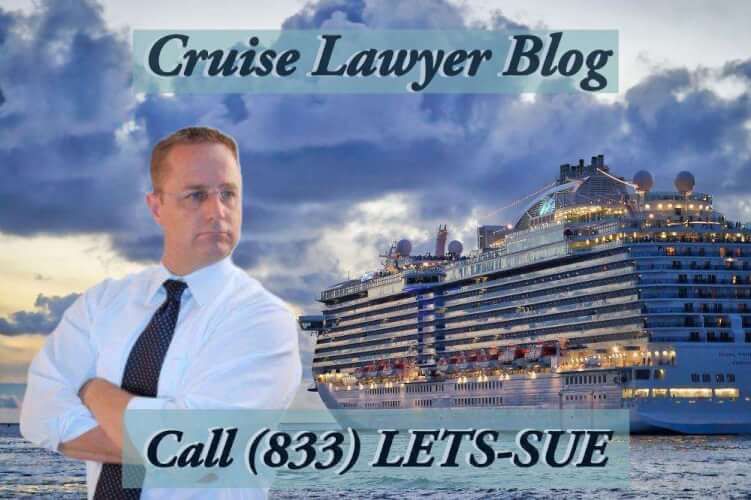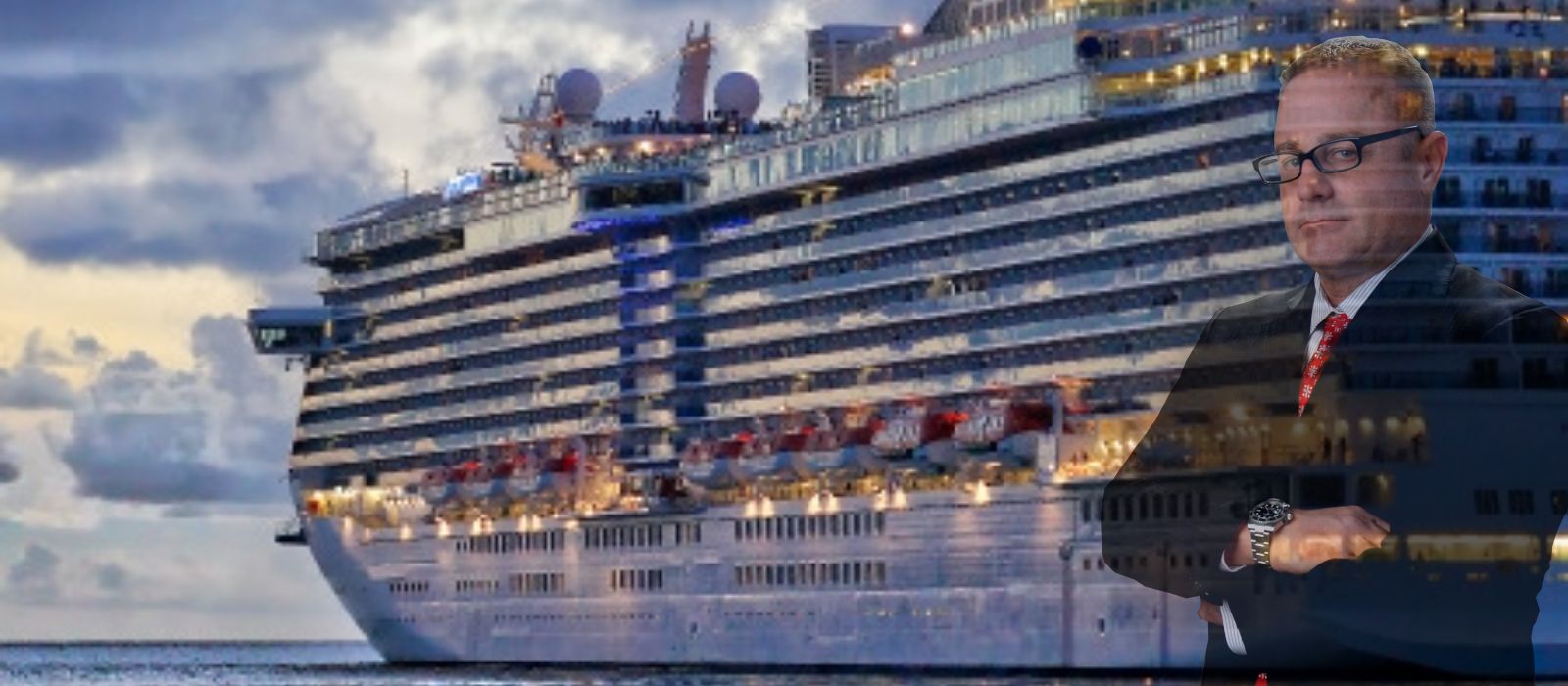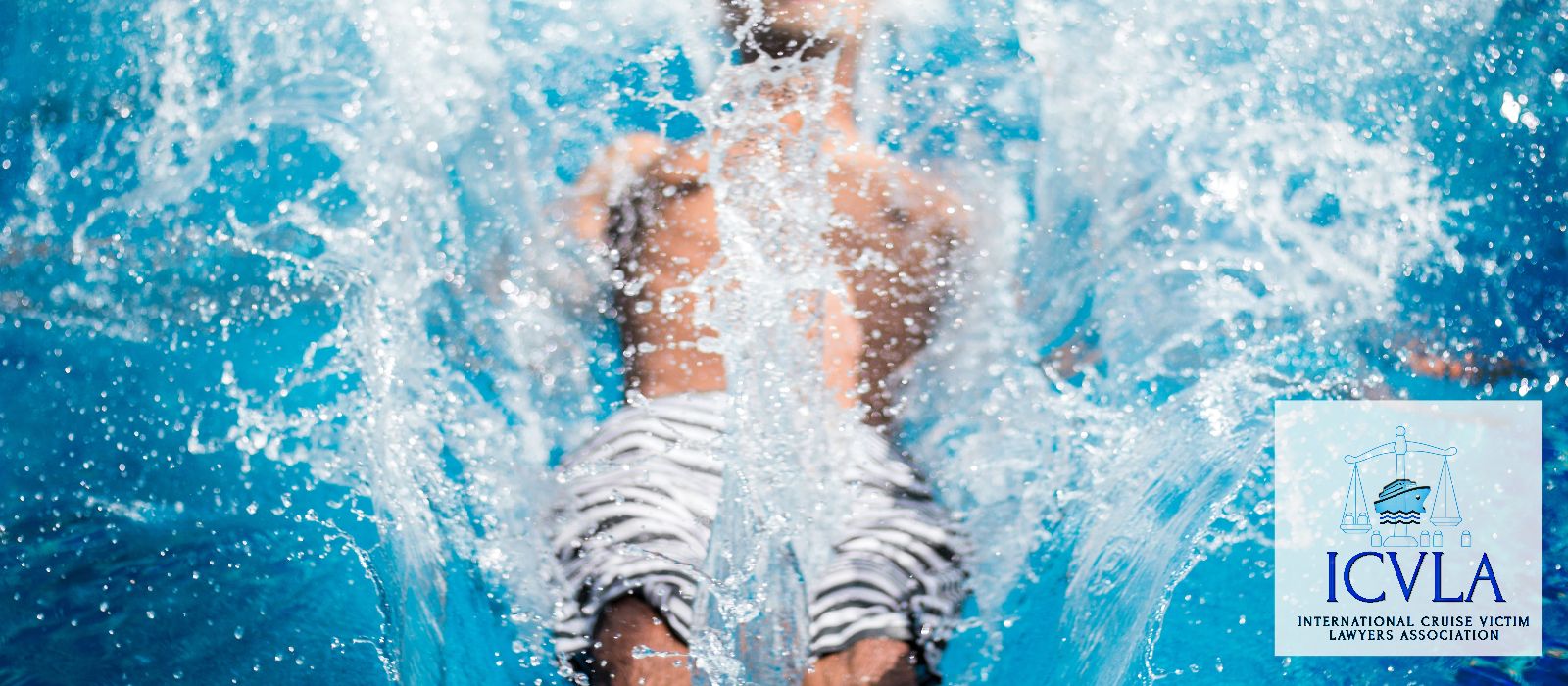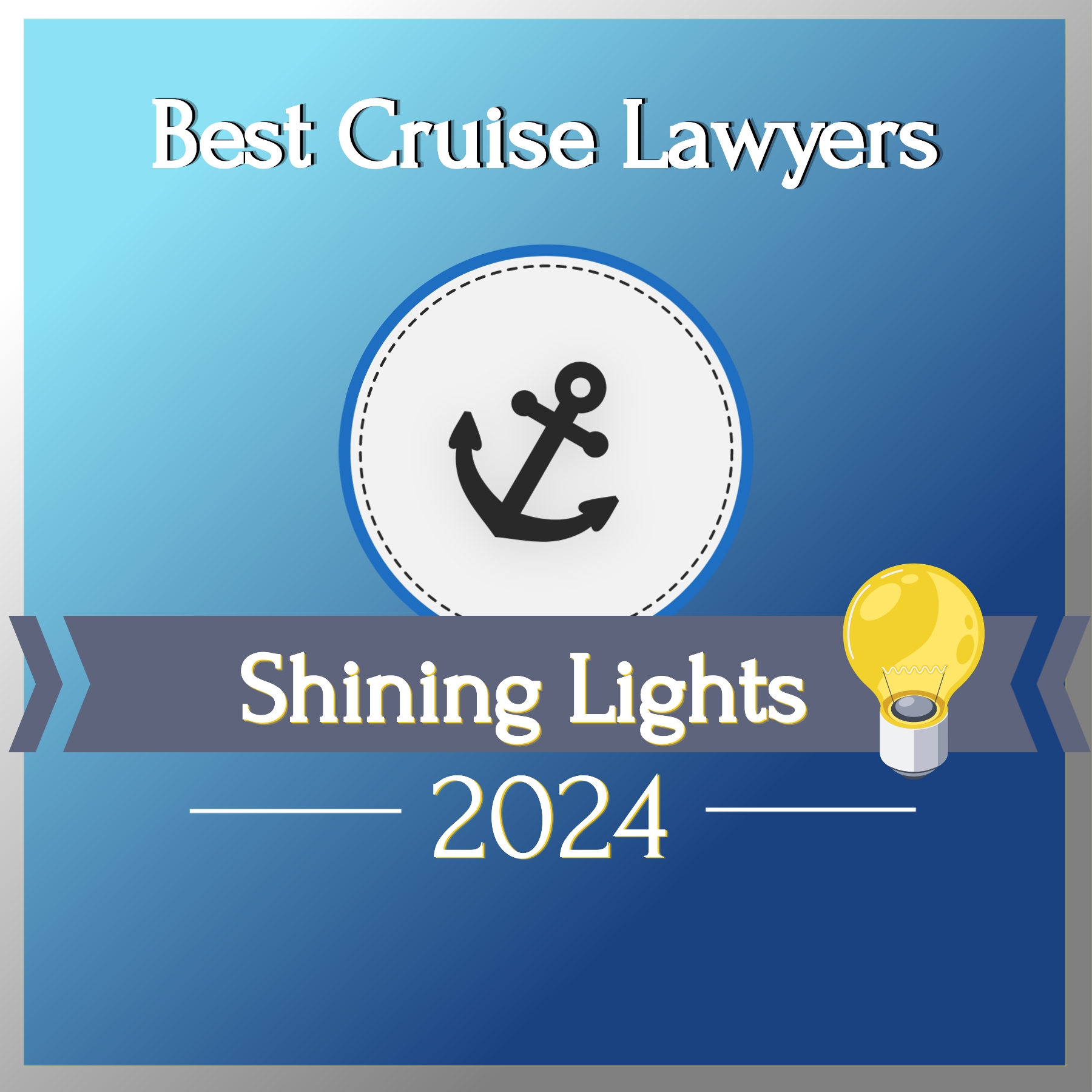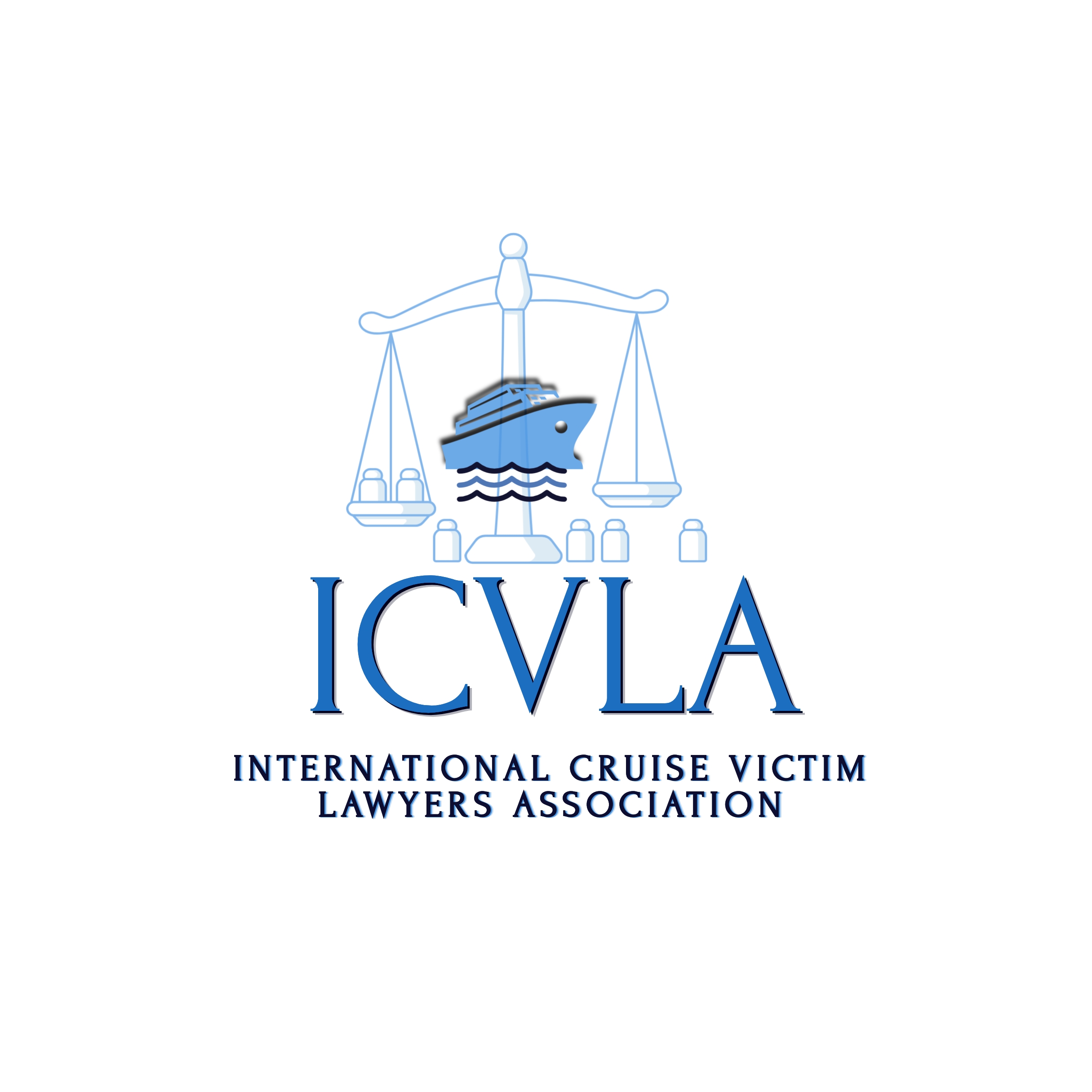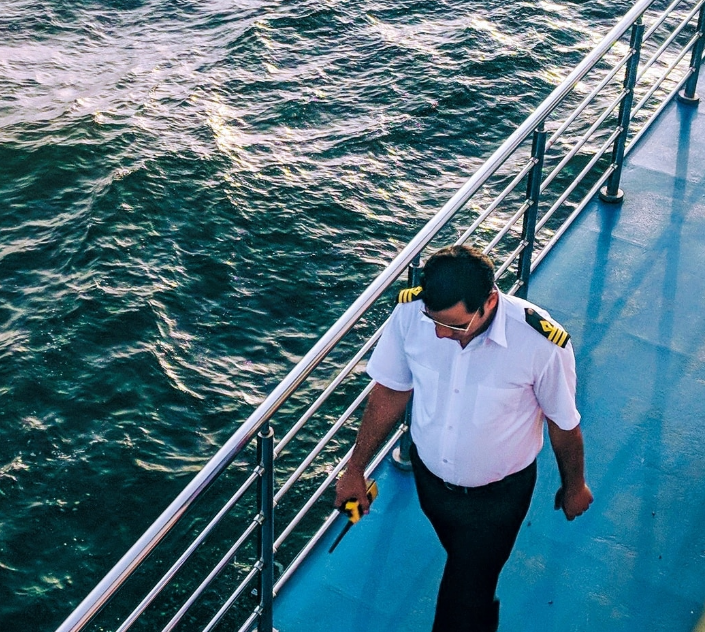Never assume you are safe behind the raised railing of a cruise liner just because the captain from Miami made you feel good. There’s an alarming, growing trend we have heard about on the news that’s been growing on the high seas. It’s not just pirates or the threat of terrorism in the still of the night. In the past few years, the number of people falling overboard from cruise ships and ferries has skyrocketed. The cruise industry’s inability to monitor, track, and promptly rescue these unfortunate passengers and crew members is an annoying issue that potentially impacts everyone planning to step foot on a cruise.
Since January 2020, the count of undetected incidents has disturbingly shot up to 37, raising doubt about ICVLA. There’s a pressing to protect cruise passengers with man-overboard (MOB) systems. This is a problem the responsible parties in government must address for cruise guests and others without delay.
According to studies led by Travis Heggie, a professor at Bowling Green State University with a specialty in assessing health and safety threats within the tourism sector, although man-overboard incidents on cruise ships are infrequent, they are a prime reason for passenger fatalities world-wide.
“I am attorney Michael Ehline. For any woman or child aboard a cruise, I personally feel they should never be without an escort. There are predators who know they can throw a body over the side. These scofflaws know our own Coast Guard doesn’t enforce MOB laws. How many more people have to go or presumably go overboard before Carnival installs a MOB system on every ship in their line and every subsidiary line?” – Michael Ehline, Esq.
The evidence speaks for itself. In the event of someone falling overboard, a real-time report is crucial, and more people will die until this law is finally enforced. We can’t expect a crew member, or even crew members, to stand sentry over the entire hull of a ship. Still, sensors can and do that on many boats, even some built before Congress passed the federal law in 2010 to integrate technology.
Why does the U.S. Coast Guard refuse to Enforce the 2010 MOB Safety Law?
The puzzle deepens when we realize that the Coast Guard, the body charged with ensuring cruise ships’ compliance with the 2010 law, has not yet enforced the above requirements as late as December 2023. A Coast Guard spokesperson confirmed that no cruise ships have been inspected for MOB technology compliance since CVSSA was enacted over a decade ago.
Coast Guard Slow Walking Federal Rules?
The reason is the “incomplete rulemaking process[?]” initiated eight years ago. Apparently, Congress passes laws and leaves it up to bureaucrats who often get jobs with the cruise industry to WRITE laws and make rules!!! In other words, you have the right to be safe sitting in port while the whole world watches more deaths and disappears at sea for absolutely no reason by elbow rubbing in smoke-filled rooms. No joke, folks, this is how sad things have become where the servants have become the master, as will be seen.
Disconcerting Statistics: The Enigma of 397 Missing People Since 2000
Cruise Junkie has assembled an extensive dataset of cruise ship and ferry gone overboard instances. Between January 2000 and November 2023, 397 people have gone overboard or are either presumed dead or missing. If not for the pause in the cruise industry due to the COVID pandemic in 2020 and 2021, these figures could have been even more shocking.
What’s truly alarming is that since January 2020, 37 people have fallen overboard from cruise ships and ferries, with 13 incidents occurring on Carnival Cruise Lines and their subsidiaries. Reports suggest that neither the Carnival Glory nor the Carnival Conquest, let alone any Carnival Cruise Line ship, is equipped with an automatic man overboard system.
One can’t help but ask, how many more lives must be lost or endangered before Carnival retrofits its ships and those of its subsidiaries with an MOB system? An advanced safety solution could be implemented: MOB systems. Such systems have complex motion detection capabilities that can immediately detect and alert the ship if someone goes overboard.
The lack of MOB systems on these vessels prevented immediate detection of the overboard incidents. This crucial lapse triggered unnecessary delays, potentially resulting in the loss of lives that could have been saved.
The 2010 Cruise Vessel Security and Safety Act Requires MOB Systems on Cruise Ships
Enacted in 2010, the Cruise Vessel Security and Safety Act (CVSSA) was explicitly designed to address safety and security concerns within the maritime industry, mainly on cruise ships. Several regulations detailed in the CVSSA have been successfully implemented across many cruise lines, significantly impacting passenger safety.
Raised Railings But No Warning Systems, Why?
One such measure, aimed at minimizing man-overboard (MOB) incidents, requires cruise lines’ ships to install railings not less than 42 inches (1.07 meters) in height. Many cruise lines have complied, adjusting their ship railings to meet or exceed this standard.
Excuses By the Cruise Industry for Failing to Abide by Law
So far, a bunch of excuse-making on compliance with a bill attorney Michael Ehline helped through the legislative process.
Specious Argument 1 – 13 Years On, MOB Technology Still Needs Testing
Cruise Lines International Association (CLIA = Mouthpiece for the Cruise Industry) Says…
“..the industry continues to evaluate, test and conduct trials…” to try and figure out the best ones, in a nutshell. CLIA says reckless passengers have a role in this, in a frail attempt to redirect to the cruise industry narrative they regurgitate.
Specious Argument 2 – Raised Railings Are Enough
CLIA seems content with raised railings on ships, asserting there’s nothing more they can do. But that’s not the whole story.
Specious Argument 3 – False Positives
One argument that cruise lines have previously presented against implementing MOB systems is false positives—instances where the system erroneously indicated someone had gone overboard.
Admittedly, such false alarms could indeed disrupt cruises unnecessarily. However, as noted below, this argument never held water, given the technological advancements before the law and advances since. Modern systems have largely eliminated this issue.
Real Reason: Furthermore, priced between $450K-$600K, these systems are a drop in the ocean compared to the cost of a cruise ship. But that’s a captain’s salary to cruise lines that already skirt many U.S. taxes.
Semi-Specious Argument 4 – The Law Is Ambiguous so that We Can Use a Less Effective, Cheaper MOB Safety System
As clarified by a Coast Guard official to news outlets, the law gives cruise companies some leeway to choose between an image-capture system, such as:
- CCTV security cameras; and,
- Real-time detection systems that use technologies like thermal cameras and radar.
Death on the High Seas Act – Likely Reason the Cruise Industry Seems Not to Care?
Some manufacturers of these safety systems – as well as a handful of cruise lines (Disney) that have taken the initiative to install them – have stated some systems have an efficiency rate of 97% or more. Cruise lines don’t stand to gain much by implementing these safety measures. As it stands, cruises aren’t covered under the U.S. “Death on the High Seas Act,” making it challenging for grieving families to seek compensation following a fatal incident.
The legal ramifications of losing a passenger on a ship don’t significantly affect the cruise industry, MOB system or not. In other words, if cruise lines were forced to pay what a life is worth, they would not let lives get lost at sea. Get it?
“Some experts paid by the cruise industry suggest cruise ships settle for image capture technology, like CCTV until more reliable man-overboard detection systems become widely available. However, the late Ken Carver, founder of International Cruise Victims Assn, Inc., told attorney Michael Ehline that “this technology was already on ships in 2010.”
Michael says, “Waiting until after Ken passed away is not what he had in mind.”
The Inventor of the Man Overboard Detection System – Technology Has Existed for Years, Used On Many Vessels Now
Many former Navy engineers, including Dave Leone, assert that the most advanced generation of overboard sensors is currently available on the market and has been for a long time. Leone played a pivotal role in building this system that detects falling masses instantly and triggers an immediate alarm.
Dynamics of Slowing a Cruise Ship
Think about it – a typical cruise ship takes about a mile to halt while cruising fully. With a 15-minute delay to confirm the MOB report, the boat could have traveled approximately seven miles from where the person went overboard.
This gap can make search and rescue missions difficult and, in many cases, could mean the difference between life and death.
The innovative overboard sensor technology Leone pioneered in 2010 employs two lasers that activate an alert on impact.
Understanding the MOB System
- Advanced Motion Detection: The MOB system is expertly designed to use advanced motion detection technology. When the system detects someone going overboard, it sends a signal immediately to the ship’s bridge. This prompt alert allows the ship’s officers to act immediately.
- Infrared: Besides detecting real-time incidents, the MOB system incorporates infrared heat signature technology and live video feeds. These features aid in effectively tracking the victim overboard, greatly enhancing rescue missions. It’s almost like equipping the ship with a watchful guardian, ready to act at a moment’s notice to safeguard its passengers.
Eight Years On, Congress Seeks Updates from the Coast Guard
The Coast Guard has a cozy relationship with the cruise lines, too. They get jobs as expert witnesses or many other positions in the cruise industry when they retire or are separated from the sea service. And, politicians fleeing or between elections can always count on warm reception within the cruise industry as an executive liaison with Congress, like pharma heads and the CDC and FDA.
Soviet Style Public Servants?
In a case that sounds more like something that would happen in Soviet Russia, the USCG is being probed about man-overboard tech on sailing vessels, as required by the CVSSA. U.S. Congressman Richard Blumenthal, hailing from Connecticut, sent an inquiry in May seeking insights about deploying this technology on operational ships.
This article aims not to induce fear but to highlight the situation’s urgency. It is to draw attention to the fact that cases of men and women going overboard are happening all too often and that the existing safety mechanisms are sorely inadequate in handling them.
It is time to address this and ensure that every passenger and crew member’s life is respected and protected.
- Carnival Glory: A 28-year-old passenger, Tyler Barnett, vanished in plain sight, with the last sighting at about 11:40 p.m. After a ship search the following morning, the five-hour delay in reporting the incident to the U.S. Coast Guard significantly hampered the rescue efforts. The U.S. Coast Guard said: “Our crews battled severe weather conditions for multiple days and made every effort to find Mr. Barnett. Suspending an active search is never a decision we make lightly, and we offer our most sincere condolences to Mr. Barnett’s family and friends.”
- Carnival Conquest: A similar mishap occurred two months earlier. A family member last saw Kevin McGrath, a 26-year-old passenger, in his stateroom at 2 a.m. Despite a ship search, he wasn’t found.
The Mysterious Disappearances of Barnett and McGrath
The CCTV footage did not indicate passengers going overboard on either Carnival ship, including Barnett and McGrath. It doesn’t help that cruise ships have been accused of “losing” videos of evidence when they get sued. Furthermore, Carnival has no explanation regarding the disappearance of these two passengers.
Significantly, neither the Carnival Glory nor the Conquest Cruise ships have an automatic man overboard (MOB) system to detect overboard incidents immediately.
In other words, there was never:
- An alert to the ship’s bridge
- Record of the occurrence
- Ability to detect passengers and track people falling overboard.
Purpose of this Expert Legal Treatise?
The Shared Responsibility of Safety Onboard
Of course, cruise passengers also have a role in ensuring their safety with Man Overboard Systems (MOBs). Aboarding a vessel is a shared responsibility between the cruise lines and the passengers to maintain strict safety standards and behave responsibly. However, when visibly intoxicated cruise passengers are continually served alcohol, doesn’t that put their safety and that of others onboard at risk?
Cruise companies unquestionably bear the ethical duty to protect passengers or even a crewmember from going overboard. If they jump (suicide while drunk) off a low balcony or fall, for whatever reason, they must be rescued before they drown or get eaten by sharks as other passengers watch in horror. (See shark attack example here.)
The self-aware cruise company should place its special duty to passengers above potential profits. A potentially drunk passenger gambling in the ship’s casino or buying drinks is worth more alive to the family, especially when DOSHA makes wrongful death at sea lawsuits an exercise in futility.
Understanding the Protocol of Man Overboard on a Cruise?
Cruise ships follow a meticulous emergency procedure in the unfortunate event of a passenger falling overboard. Let’s look at how cruise ships respond to an alarming situation like this.
“Oscar” – Man Overboard Code on a Cruise ship?
When someone falls overboard at sea, a three-blast whistle sound followed by a general alarm bell, known as the Morse code ‘Oscar,’ alerts the other crew members. This scenario is aptly referred to as ‘Mobi.’
1. Crew’s Immediate Response
Once the command bridge receives a notification of an overboard incident, it activates an internal alarm. The ship-wide broadcast of “Oscar, Oscar, Oscar” serves as the code word to alert everyone onboard of the incident.
Visual contact with the overboard passenger is critical. If maintained, the ship stops its journey and dispatches life and rescue boats. On the other hand, when the passenger is reported missing, the vessel recalibrates its course towards the presumed point of water entry.
2. Search and Rescue Efforts
Without delay, the ship’s command informs the local Coast Guard, providing critical support to an ongoing rescue mission. The Coast Guard, on receiving a distress signal, collaborates with the ship to gather all necessary information.
The Coast Guard’s duties span sending aircraft, cutters, and dedicated rescue teams. Analyzing medical conditions ensures safe transportation to land-based healthcare units. And yet, soberingly, many overboard victims remain unrescued despite such concerted efforts.
How Can One Avoid Falling Victim?
Man-overboard incidents can be disastrous, and while the ship’s crew is entrusted with handling the aftermath as passengers, there are preventive measures you can adopt.
- Stay alert to your surrounding environment, especially while on the higher decks.
- Avoid sitting, standing, or leaning on railings, open windows, or balconies.
- When the weather is rough, or the sea is turbulent, restraining your movements aboard the ship is wise.
- Never leave children unattended; prevent them from climbing onto furniture near railings or balconies.
- Paying close attention to crew instructions can ward off potential accidents.
Disney Charting a Successful Course?
Yes. Disney Cruise Line has boldly faced this issue, leading the industry by installing MOB systems throughout their entire fleet. It’s time for the rest of the maritime sector to follow this example, prioritizing the safety of all on board.
Rescue Operations Without an MOB System: The Roadblocks
It’s worth noting that the Cruise Vessel Security and Safety Act of 2010 (CVSSA) requires cruise ships to install these systems. Without a Man Overboard (MOB) system, the odds of a successful rescue are drastically reduced. Modern cruise ships are equipped with excessive video surveillance, requiring round-the-clock monitoring. Time is an essential factor in MOB scenarios.
Takes a Mile or More to Stop a Ship at Sea?
Considering it takes around one mile for a cruise ship to come to a complete stop at sea, just a 15-minute delay from the MOB report to confirmation means the boat would have moved approximately seven miles from the actual man overboard systems’ location, making rescue missions exceedingly challenging.
Solutions Right Now!?
To reduce casualties from passengers falling overboard, the Cruise Vessel Security and Safety Act (CVSSA) was passed in 2010 to detect passengers who go over the side and rescue them quickly.
Enforcing Existing Legal Measures
Simply put, the burden is on the U.S. government to apply these laws more effectively, prioritizing the safety of its citizens. The legislation demands cruise ships implement mechanisms that capture images of potential overboard passengers or detect them in real-time as they fall.
Did someone you love fall overboard recently? ICVLA wants to know why the original goal of Ken Carver of the International Cruise Victims Association was not met to protect passengers so many years out. Such technology exists, and HAS existed since 2010!
Conclusion – Force USCG and other Cronies Inside to Do Their Jobs!
We just saw how loopholes, lack of enforcement, or penalties have allowed the cruise industry to evade 13-year-old law! Let’s call on the cruise industry to put safety first. The time for change is now. It’s time for the U.S. government and cruise lines to reconsider their priorities and put passenger safety at the forefront.
Let’s demand they install MOB systems on all their ships, voluntarily or otherwise. And let’s urge the U.S. government steadfastly to enforce the Cruise Vessel Security and Safety Act of 2010 without delay. With the government’s action and the cruise industry’s cooperation, we could significantly reduce overboard incidents on cruise ships by the end of 2029.
Let’s make this urgent, life-saving change happen for us and our loved ones. No cruise passenger should be forced to wait a day longer for man overboard technology. Ultimately, when we embark on a cruise adventure, we should focus on the journey’s excitement, not the fear of overboard accidents. A single-life lost at sea is too many; 37 lost over several years historically is a tragedy. Adding to their agony is the knowledge that the accident might have been avoided had an automatic man-overboard system on the ship. This lack of essential security measures on most cruise ships in an environment where they are needed is unacceptable.
Do you think cruise ships are shirking their responsibilities and placing profits over people? Do you want to hold industry and federal government officials accountable? Did you witness a deadly MOB, or were you a victim yourself? Please get in touch with our organization so we can podcast and write about your story for our readers. Call 855.AL-ICVLA or use our online contact us form today!

